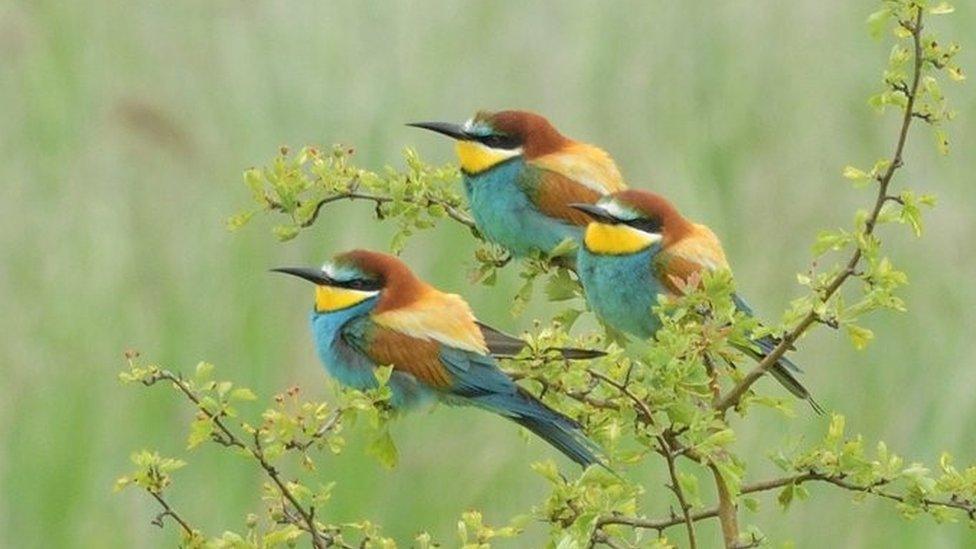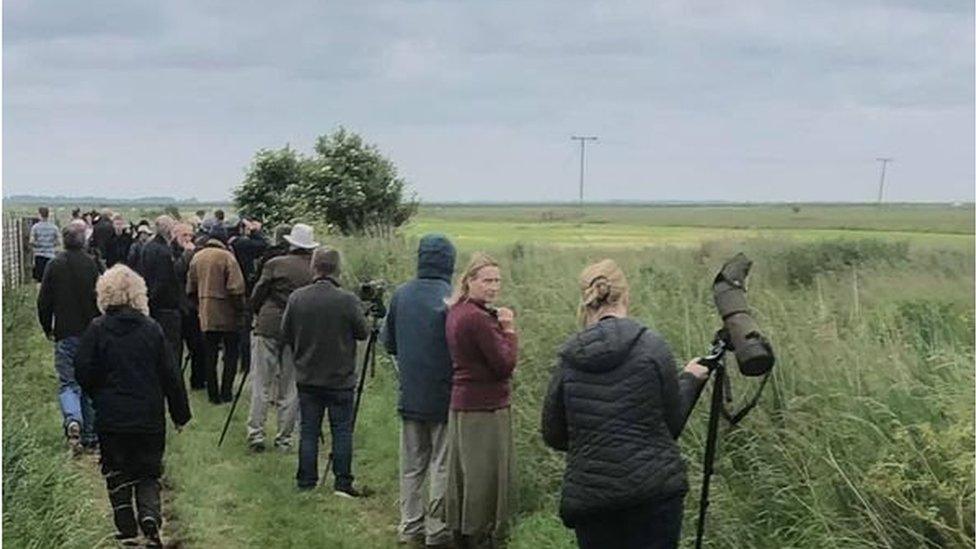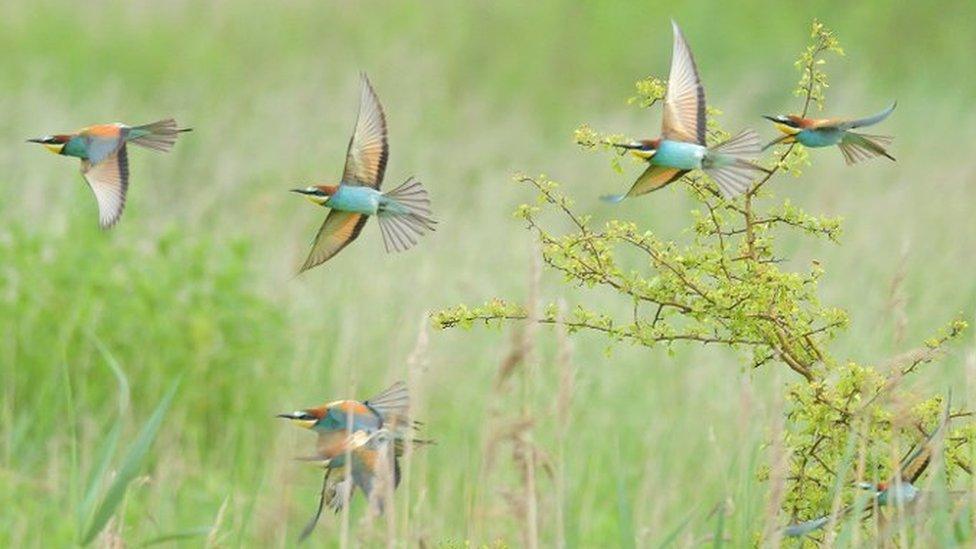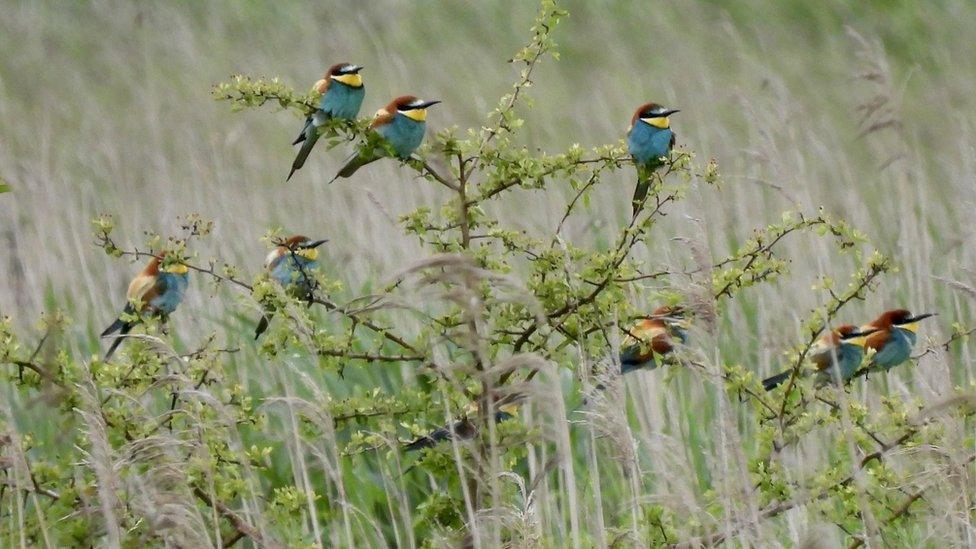Bee-eater birds spotted in 'magical' sighting in Great Yarmouth
- Published

The RSPB described the sighting of the bee-eaters, captured here by birder Rob Holmes, as "magical"
Hundreds of birdwatchers have descended on land behind a retail park after a rarely seen flock of birds arrived.
The European bee-eaters were first spotted by landowner Leon Docwra in Great Yarmouth, Norfolk.
He posted on social media, asking people to help identify the colourful birds "making an unusual sound", as reported in the Eastern Daily Press, external.
Since then, some 300 people have visited to see what the RSPB described as a "magical" sighting.
Mr Docwra said he heard a "chattering noise in this hedge" behind TK Maxx on the Gapton Hall Retail Park.
"I thought: 'What on earth was that noise?' I looked up and I saw these beautiful birds," said the 45-year-old.

Landowner Leon Docwra said about 300 people have visited to see the birds and have been "over the moon"
He said he posted a photo on Facebook and followers helped him identify the birds.
After he posted another photo showing eight of the birds, Mr Docwra said one birdwatcher got in touch to ask if he could come see the flock and "about 300 of them followed".

Wildlife photographer Rob Holmes described the birds in flight as a "razzmatazz of Mediterranean pizazz"
He said those visiting have been "over the moon" to see the exotic birds and have been a "really lovely bunch of people".
"Seeing the smiles on their faces, they are absolutely huge, it's lovely to see," he said.
Mr Docwra said some had slept in the their cars to see the flock.
"I look out of my bedroom window and there are birds there that people have never seen in their lifetime just chattering away," he said.

Nine bee-eaters have been spotted at once in a bush near Great Yarmouth's Gapton Hall Retail Park
Wildlife photographer Rob Holmes described the sighting near the retail park as "one of birding's more unusual juxtapositions".
Another posted on Twitter that she had never seen more than one bee-eater in the UK before.
The RSPB said the sighting in Great Yarmouth was "magical".
It said bee-eaters were "super" birds with the "most beautiful flutey calls that are what usually first draw your attention when close by".
They originate from Asia and Africa and are known to migrate to southern Europe in late April through to early June.
The British Trust for Ornithology said bee-eaters were seen annually in Norfolk in ones and twos "but anymore than this is extremely unusual and a flock of nine in Norfolk is unprecedented".
It said: "This flock of bee-eaters has been seen as far north as Yorkshire and seems to have been on a tour of the east coast.
"They are normally found in southern Europe. Bee-eaters have occasionally bred in the UK and it is one of the southern species that is predicted to colonise in the future as the UK becomes warmer."

Find BBC News: East of England on Facebook, external, Instagram, external and Twitter, external. If you have a story suggestion email eastofenglandnews@bbc.co.uk, external